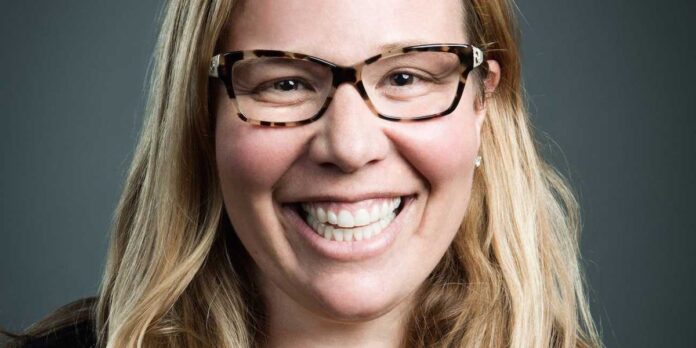- Tech execs are supposedly a pampered lot. But their high pay means they work long hours.
- Silicon Valley exec Leyla Seka explains how she became a workaholic as her career grew.
- She describes how she learned to balance her work and life.
This as-told-to essay is based on a conversation with Leyla Seka, a former executive vice president at Salesforce, a partner at the women-led venture-capital firm Operator Collective, and the former COO of the startup Ironclad. It has been edited for length and clarity.
I thought I was going to work at Salesforce my entire life; I was there for almost 12 years. But a turning point happened in my career — and really, my life — after my husband and I had a jarring conversation.
I was an executive vice president at Salesforce at the time, running a business unit while spearheading the company’s equal-pay initiatives and other diversity programs before the company hired its first chief diversity officer.
I’d just spent a few days on a road-trip vacation with my husband and kids, and the whole time, my husband and I had bickered. That’s not us. We don’t bicker. On the drive home, my husband said, “You are really hard to be around right now.”
I was shocked. Was I really to blame? After a moment’s reflection, I asked him to tell me what it felt like to live with me lately. I promised not to comment, but to simply write everything down.
He told me things like that I thought my time was more valuable than everyone else’s, that I was only half there, and that I prioritized my job over everything and everyone else. It was crazy! But I read that list out loud and knew it was all true.
That was the turning point, the “a-ha” moment.
You see, my parents are immigrants, so growing up, everything was about stability. My dad worked in the same law firm his whole career. My parents still live in the same house that I came home to from the hospital. It was a very dig-in-to-fit-in mentality. When it came to my career at Salesforce, it didn’t even occur to me that I would leave. I tried a couple of times, but I really just wanted them to say, “No, no, no! We love you. Stay, and here’s some more money.”
After that painful talk in the car with my husband, I realized I had let my life become all work. I had stopped reading for pleasure. I had stopped doing anything artistic. I just worked, and then helped my kids as if I was just trying to get through every day. That conversation forced a degree of personal honesty: I wanted to do other stuff, too!
I decided to read 50 books a year — only fiction, nothing for work. And I really like taking photographs, but I had totally stopped. So a friend encouraged me to set up an Instagram account as a creative outlet. I also got a second phone for only my personal life, so I could focus on my family without being tempted to check in with work.
These things gave me the confidence to face the fact that I needed an even bigger change — I decided to leave my job at Salesforce. It was a difficult decision because work had become both my identity and my social circle.
When I left, I had no plan. My only objectives were to get better at fly fishing and spend more time with my family.
Shortly after, though, I got a call from Mallun Yen, a lawyer and former SaaStr executive who was starting Operator Collective, a VC fund with a mission of bringing women with tech-industry operational experience into the venture-capital ecosystem. Women have traditionally been left out of venture investing, which had irked me for some time, so I joined her, helping her raise and deploy a $50 million fund.
While at Operator Collective, it became clear that if women are scarce in venture, Black people are even more so. That inspired me to help launch Black Venture Institute, which trains 50 Black executives on venture-capital finance twice a year. So far, more than 200 people have taken the course, with many going on to start their own funds, to join established firms, or to angel invest. BVI is one of the things in my career I’m most proud of.
Venture capital also led me to a role at Ironclad, one of the first investments we made at Operator Collective. Ironclad’s CEO and I were talking one day, and I made a joke that I should come help him run his company as COO. He was at my house the next day.
At Ironclad, I still worked hard — that’s just who I am — but this time I worked smarter. When I was younger, I thought I had to work as hard as humanly possible to be successful. I lost myself in that notion and almost damaged the relationships I cherish the most because of it. I had to learn work boundaries the hard way.
One of the biggest tests of my boundaries happened just this week. A family circumstance arose that made me realize that someone I love — my mother — needs me, and needs me now. I made the difficult decision to step down from my position at Ironclad, a job I love, after 15 months to focus full-time on my family.
Creating these boundaries and learning how to stick to them has helped me understand that I set the limits of my work life — not the company I work for. It’s on me to create and live a vibrant life, and I intend to do it.
Credit: Source link





























